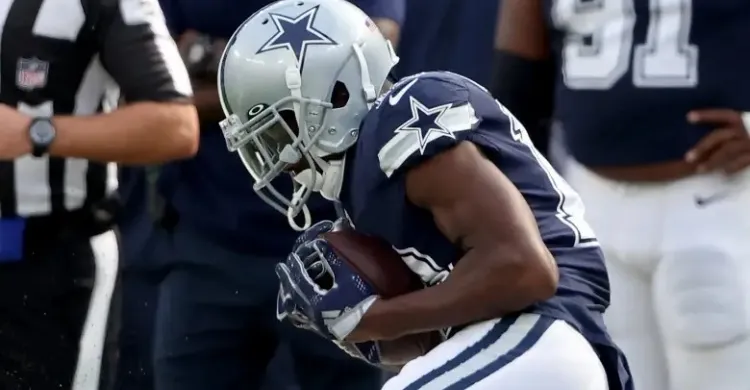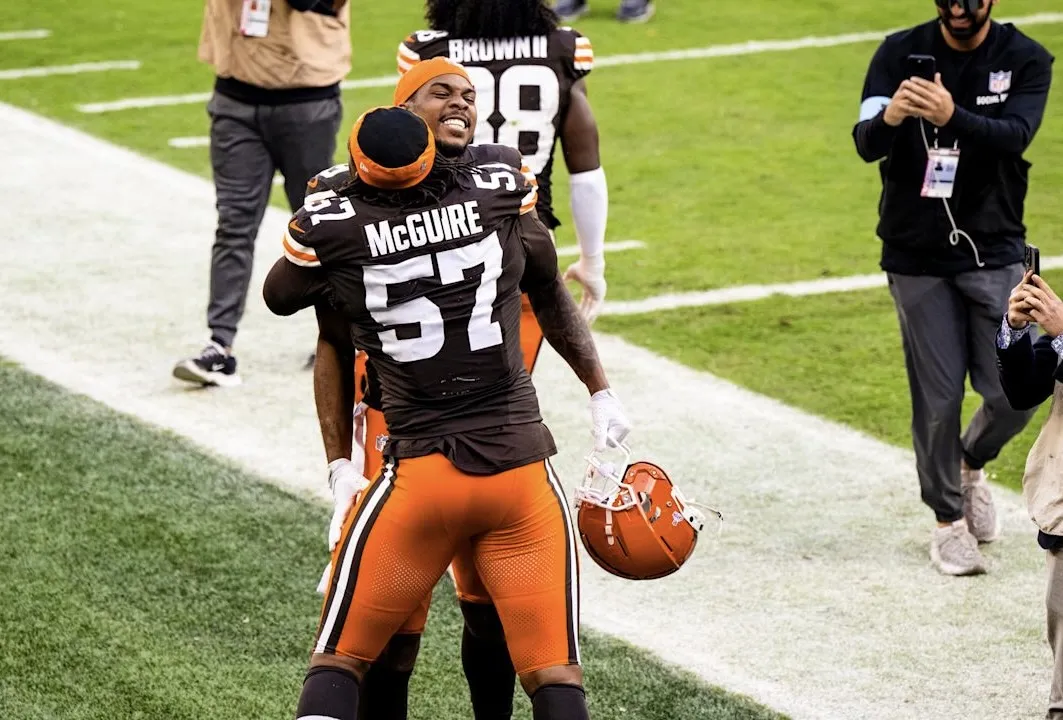The Tennessee Titans had a leadership problem last year.
It’s not that they had bad leaders, but rather a concerning lack of them. That’s not a particularly shocking revelation in hindsight, given how poorly the season went for just about everybody involved. But heading into a rebuilding year in which they’re laying the foundation for their new franchise QB Cam Ward, finding a way to remedy that problem as quickly as possible is paramount.
That’s a significant focus of their innovative and highly intentional offseason program: leadership development. It’s still very early, but returns so far have been positive. Head coach Brian Callahan believes leadership isn’t just God-given, but can be cultivated. And on the best teams, you don’t just have a handful of leaders at the top of the totem poll; there are layers of leadership hierarchies all over the team. That’s what he and his staff have devoted so much energy and time into setting this summer up to build in the Cam Ward Era.
If you read the title of this piece, you’re probably wondering what Mike Vrabel has to do with any of this. Well, the reason I think he’s critical to understanding this story is that by the end of his tenure in Tennessee, he WAS the leadership. I’ve come to the realization that fans, media, and the coaching staff alike all underestimated just how dire the leadership situation was heading into 2024. The cupboard was bare. And that’s due to a mass-exodus of tentpole leaders near the end of the Vrabel years.
When this team was most recently at its best, it had Ryan Tannehill, Kevin Byard, Ben Jones, Roger Saffold, and Denico Autry as steady leadership, amongst others. They enjoyed a culture of accountability and leadership all throughout the building as well, which is what good teams achieve and what the Titans are currently laying the foundation to build towards again. But the leadership was player-led.
Ask most coaches in the league, and they’ll tell you the best teams they’ve been apart of are almost always player-led. They’re doing press conferences after the Super Bowl talking about how they challenged and uplifted one another as teammates; not singing the praises of the work their position coach did to rally the troops. That’s not to say that good coaching doesn’t matter, or just stays out of the way. But rather, good coaching teaches, enables, and then encourages player leadership.
Some coaches are unicorns who can break this mold, though. Mike Vrabel was (and is) one of those coaches. Think Bill Belichick or Mike Tomlinson energy. When they need to be, they can practically single-handedly shoulder the leadership burden for their squad. They don’t have to, but they can. It’s not always particularly stable or healthy in the long run, but they can do it. And in hindsight, it’s incredibly clear how much that was the case in Vrabel’s final year.

When Brian Callahan took over this roster, what was the leadership setup? Jeffery Simmons and Harold Landry, who were established vets and extremely productive players, but not the kind of universal leaders you’re necessarily looking for. Beyond them, we pointed mostly to new leadership from free agency and the draft. But the mixing pot of Will Levis, Calvin Ridley, Quandre Diggs, L’Jarius Sneed, Tony Pollard, JC Latham, Lloyd Cushenberry, and Peter Skoronski amongst others simply didn’t work in terms of deeply-rooted and effective leadership. Each guy had different reasons. Ultimately, it was a room full of new guys who weren’t comfortable in the way they needed to be. It’s something that hurt this team, and it’s something they’re working very hard to fix.
The good news is that early returns are as positive as can be. Coach Callahan is happy with the improved buy-in from the players, their willingness to open up to and bond with one another, and the improvement from vets and stars in their ability to step up and lead. It's also worth noting just how much of their 2025 draft class is naturally inclined towards leadership. It's no coincidence that this class is full of team captains, coach's favorites, and well-spoken high-character guys. If this unique offseason program works as designed, the Titans will be a much better team in 2025.



